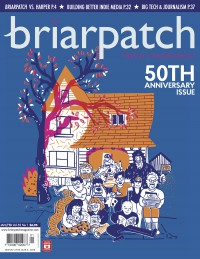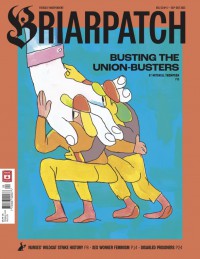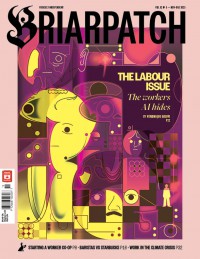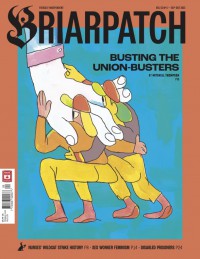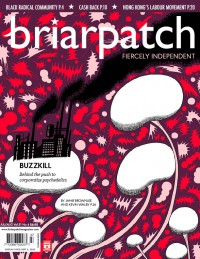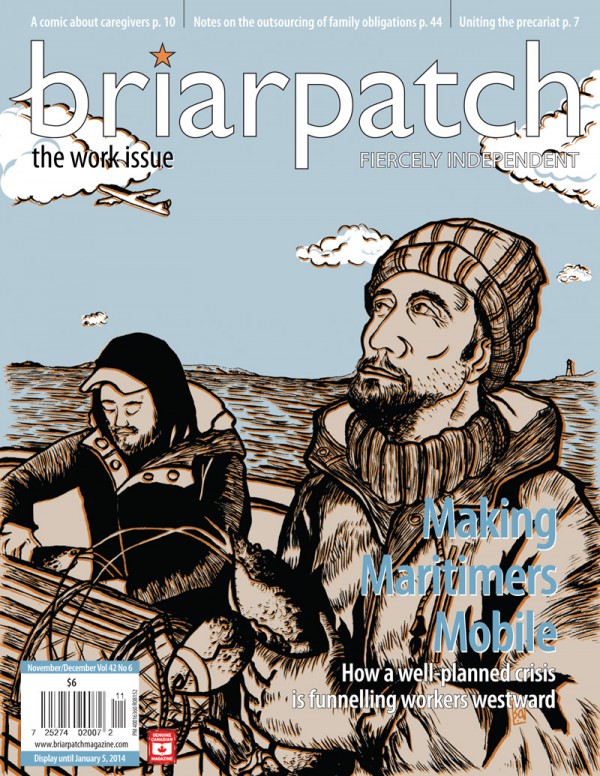
This issue of Briarpatch looks at the politics of precarity, labours of love, and the outsourcing of family obligations. Katie Mazer argues that the crisis of East Coast economies has been thoroughly planned, and it’s funnelling workers westward to Alberta’s tarsands industry. Comic artists Althea Balmes and Jo Simalaya Alcampo explore stories of Filipina migrant workers, and investigative journalist D’Arcy Handy reveals how the uranium industry bought the Village of Pinehouse — and what residents are doing to take it back.
Add To Cart $7.95
-
 Magazine
MagazineAgainst nostalgia
Of the dozens of generally crappy jobs I’ve held since my teens, only two have been at union shops. That’s two more union jobs than most people under 35 have had.
-
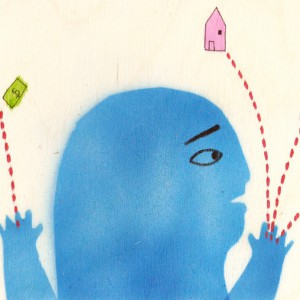 Magazine
MagazineThe politics of precarity
The Urban Worker Strategy proposes a sweeping suite of overdue federal policies that respond to the plight of temps, freelancers, interns, part-timers and other flexworkers who flit from gig to gig, shift to shift, contract to contract, with no guarantee of income or future work, let alone access to benefits or pensions.
-
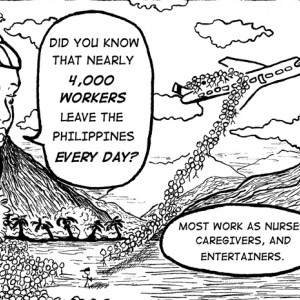 Magazine
MagazineKwentong bayan: Labour of love
In the Filipino language, Kwentong Bayan is the literal translation of “community stories;” and Labour of Love reflects the artists’ understanding that caregiving work – like community-based art work – is rooted in love, is valuable, and deserves respect.
-
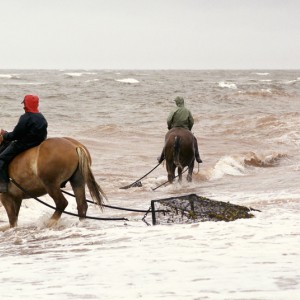 Magazine
MagazineMaking Maritimers mobile
We often think of rural decline as part of the natural course of economic history, but the state of things on the East Coast has, in a sense, been thoroughly planned.
-
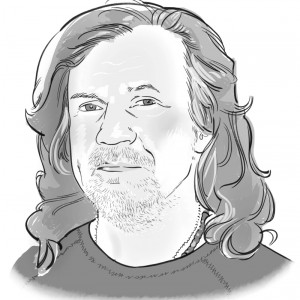 Magazine
MagazineFrom the ground up
During the economic expansion that followed WWII, organized labour won significant gains in exchange for embracing capitalism. Long since the crises of the 1970s, and decades into organized labour’s decline, major labour organizations still talk as if a return to that postwar compromise is possible. What can be done – what is being done – to challenge this orientation?
-
 Magazine
MagazineCourting collaboration
Pinehouse residents Fred Pederson, John Smerek, and Dale Smith all feel like they have been wearing targets on their backs since their names appeared in a lawsuit filed in June.
-
 Magazine
Magazine“An irresistible force”
Before dawn one Sunday in June 2010, nearly 1,000 people converged on the Port of Oakland in northern California. Following a well-devised plan, they marched to the dockside gates of SSA Marine, one of the world’s largest shipping corporations, and awaited the arrival of the Israeli cargo ship Zim Shenzhen.
-
 Magazine
MagazineUntil the heart is revealed
*Art in its many forms slices through ideology and approaches truth better than any argument, probably because, in the end, art tries to find the heart of the matter rather than the brain of it.
-
 Magazine
MagazineThe lineage of care
How will I take care of my parents when they need me to return to them some of the care they gave me when I was young?

